Feature
Off the beaten track: Music-making in Discoed
How a rural Welsh hamlet became a hidden hub for Early Music
Share this
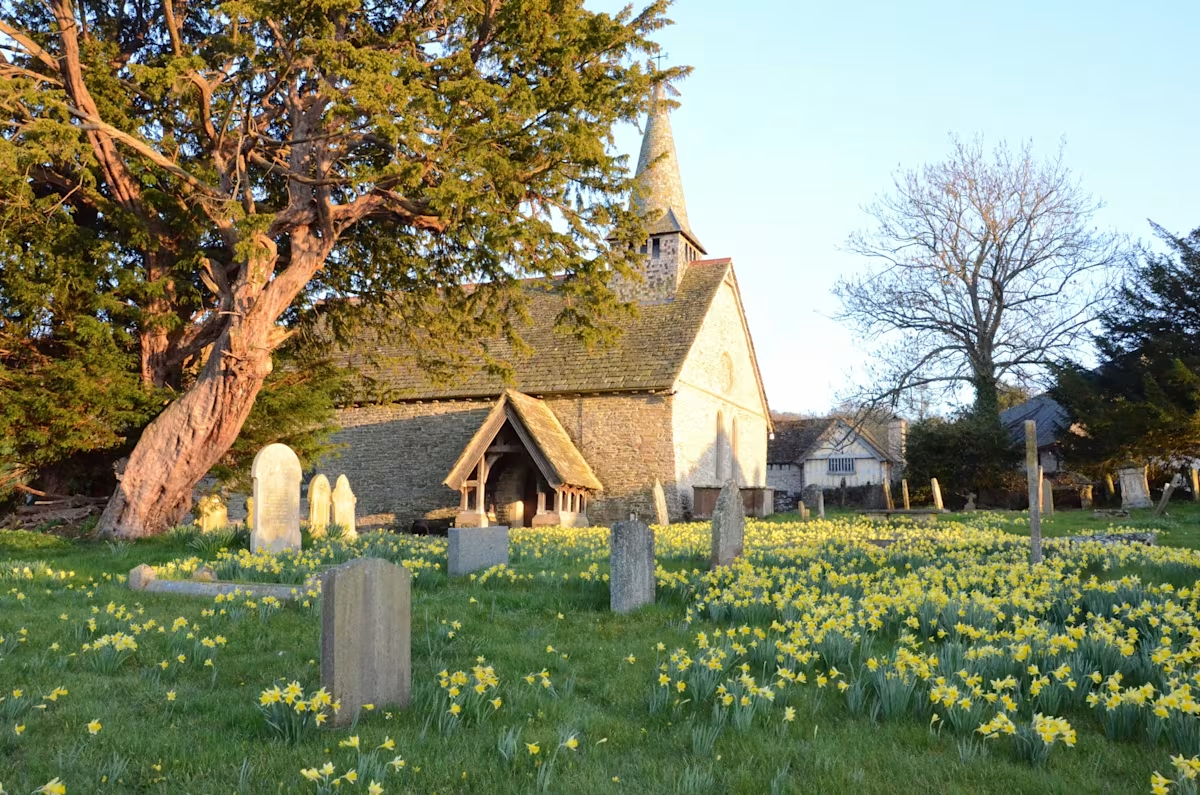
BY SIMON MUNDY | FIRST PUBLISHED 25 AUG 2025
Back in the 80s and up until the past decade, the borderlands of Wales, straddling the northwest of Herefordshire and the east of the old county of Radnorshire, were relatively affordable areas to find a pleasant house full of character, as long as you did not need to commute to a large city every day. As a result, many artists, writers, composers, and musicians came to settle there. This influx of creatives gave rise to the Presteigne and Hay-on-Wye Festivals, the Sidney Nolan Trust, and several other local arts initiatives that went on to have a much wider impact.
One of these initiatives is Early Music in the Marches (EMIM), sustained for decades through the dedication and enthusiasm of individuals who combine informal amateur music-making with a commitment to bringing top-tier professional playing to the most unlikely places. Next up is the hamlet of Discoed – little more than a cluster of cottages and farms on a back road heading west from Presteigne, Radnorshire’s old county town.
Like many small churches in the area, Discoed’s is dedicated to St Michael – the ‘All Angels’ association suggesting hints at its sanctity long before the medieval chapel was built or Christianity arrived. Within its circular enclosure stands a yew tree, reputed to be 5,000 years old, as ancient as Stonehenge. These borderlands are scattered with Neolithic remains, and the area may now be more sparsely populated than at any point in those millennia.
Chris Baines of the charity Caring for God's Acre explains the relationship between yew trees and holy places.
The Early Music performed in the church, then, is early only from our musical perspective. The late summer festival in nearby Presteigne has been going since 1983 and is mainly concerned with contemporary composers’ works. EMIM has been maintained by local resident Annie Nethercott since about 20 years ago – around the same time she started studying cello, and then viola da gamba, with David Hatcher, the Artistic Director of EMIM. David will be familiar to Continuo Connect's readers as the founder of the Linarol Consort of Viols.
David lives across the border in Leominster, where the Priory has just celebrated its 900th anniversary with concerts directed by its Master of Music, Hilary Norris. He moved to the area after he came back from Japan, ‘thanks to Alan Crumpler at Capriol Music (which was Leominster’s music shop for many years), whom I met when I was a student in London. I learned Japanese as a hobby while I was at Trinity College of Music, and so went there when I graduated, got married and stayed for nine years’.
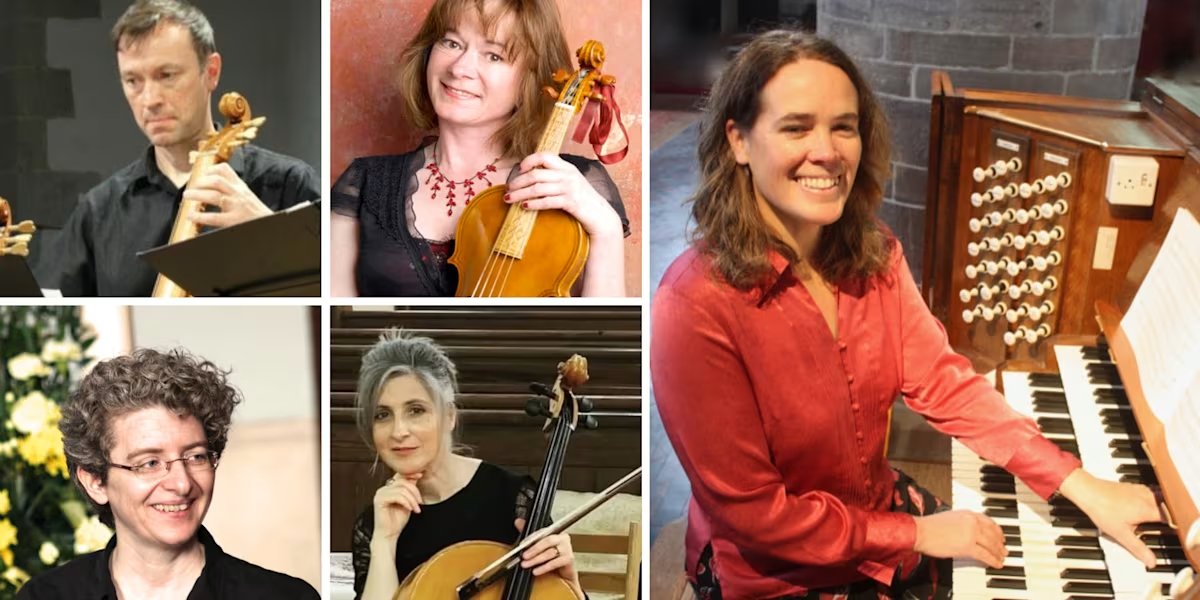
On Friday 5 September, the EMIM Weekend concert in Discoed will showcase Telemann’s Paris Quartets, brought to life by the Marches Baroque Ensemble: David Hatcher (viola da gamba), Hilary Norris (harpsichord), Claire Heaney (baroque flute), Sharon Lindo (baroque violin) and Claudine Cassidy (baroque cello). On the following two days, David and Sharon will run intensive workshops on the same works.
‘The EMIM Weekend has developed a lot since we started, though it’s a bit smaller this year’, David says. ‘Over the years we've had names like Steven Devine, Philip Thorby and James Bowman. James was wonderful – he stood with the chorus who were thrilled to find themselves singing with an icon. Even in his 70s, he just loved singing. Most of the concerts are held in Discoed, though we sometimes use St Andrew’s in Presteigne for larger ensembles. The church in Discoed has been fully restored in recent years, which has made a big difference. The spot where the conductor stood used to be the creakiest part of the floor – one year I even put my foot through it! As the Weekend grew, with around sixty people taking part, it became clear that Discoed just couldn’t expand any further. One year, fellow tutor and Baroque violinist Julia Bishop slept in her camper van, and I ended up sleeping on the podium.’
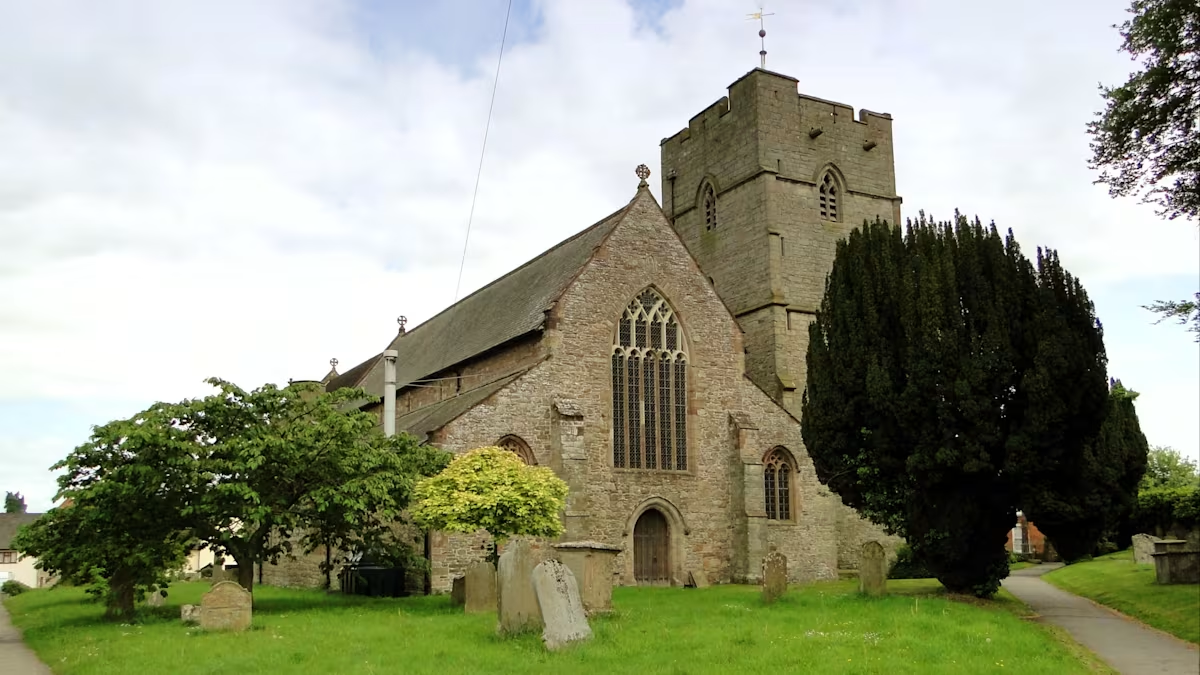
Halfway between Leominster and Discoed lies the village of Titley, the closest settlement to Presteigne and home to The Stagg Inn – one of the UK’s first gastropubs. In the village hall, Annie and David started the New Titley Philharmonic: a way for local amateur players to meet and work on music together without pressure, but guided by professional hands. ‘I think we’ve only given three concerts in 21 years’, David says. ‘It’s for the joy of playing, not for concerts. It’s not fair to force the players. It’s great for me, too, because I can dig into repertoire that just doesn’t get performed.’ In Titley, that repertoire brings all sorts together, including the composers, many of whom live and work in the Welsh Marches. ‘We are about to start work on a new viola da gamba concerto written for us by Giles Swayne, who plays viola in the orchestra.’
David emphasises the different attitude to music-making in this deeply rural part of Britain. ‘It encourages an alternative sense of what “the centre” is. London is so inconvenient, and unless you are playing in venues like Kings Place or Wigmore Hall, attracting more than about 20 people requires huge effort. In Discoed, we squeeze in 60, and over 200 in Presteigne or Leominster, and the level of appreciation is just as high, if not higher.’
Early Music in the Marches returns in September with a concert on Fri 5 Sep in Discoed, followed by a weekend of workshops (6-7 Sep).
Share this
Keep reading
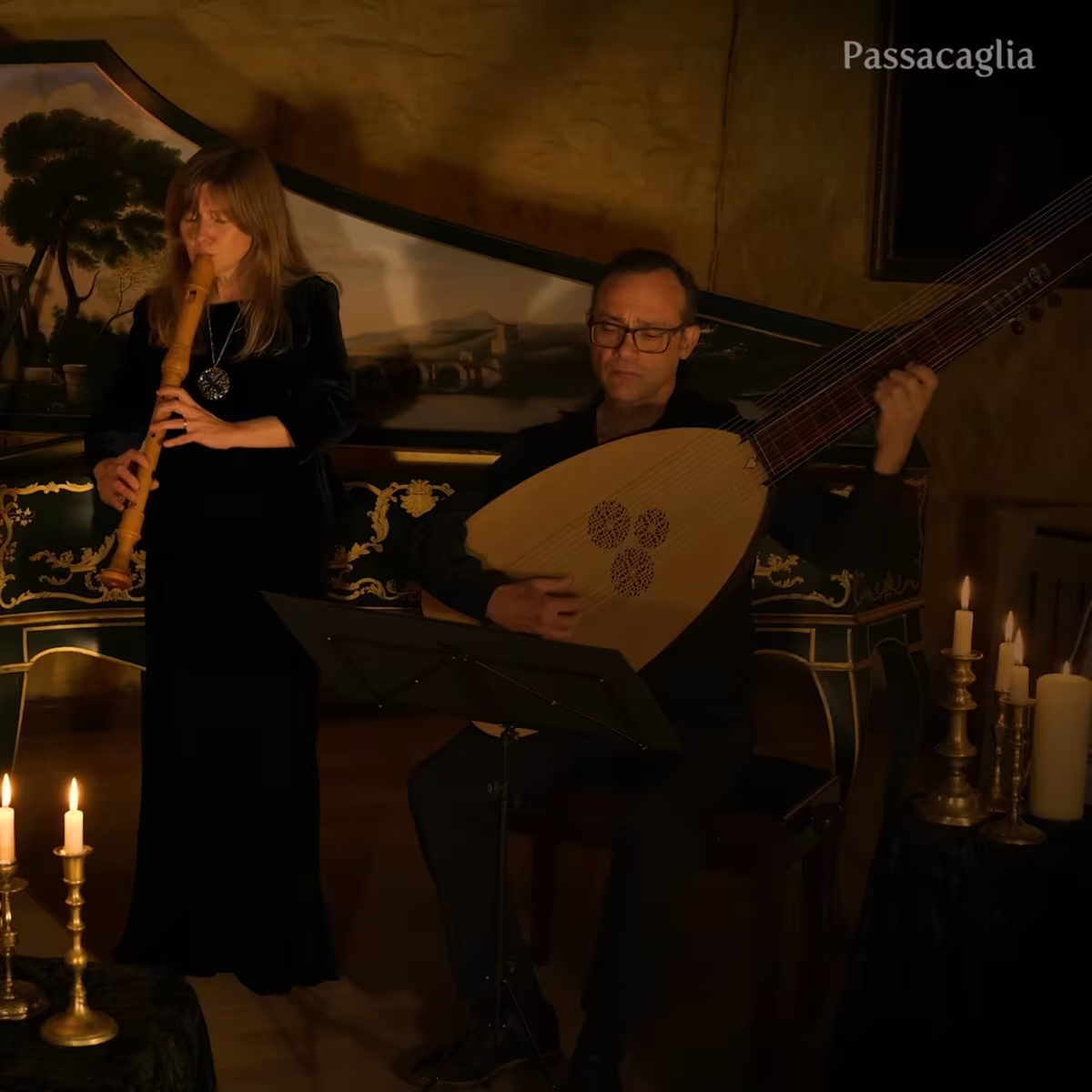
Passacaglia | Danican-Philidor ‘fils aîné’: ‘Le tombeau’
Passacaglia performs ‘Le tombeau’ in a video from their forthcoming album, ‘La Parisienne’, showcasing the music by the Danican-Philidor family.
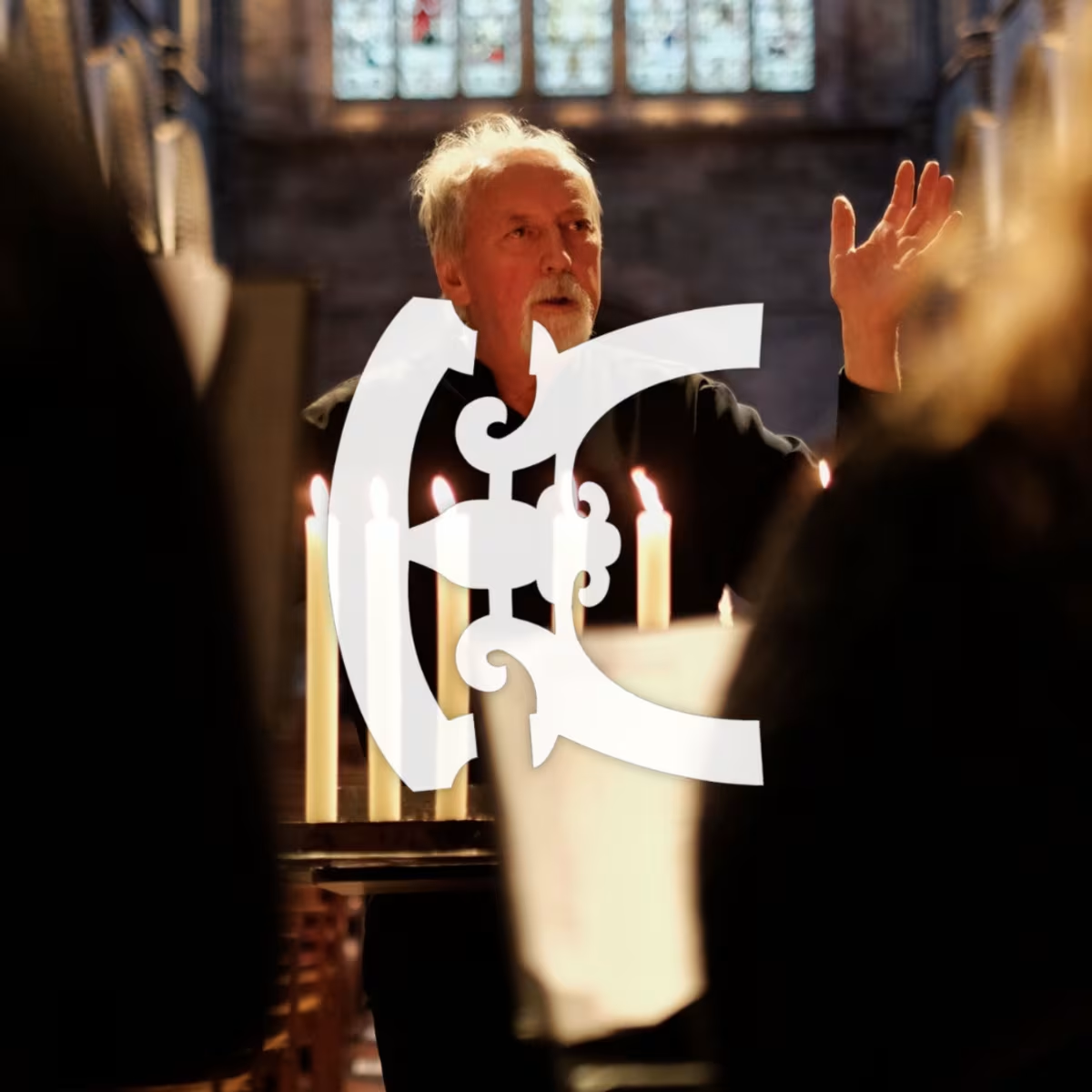
Jeffrey Skidmore: Playlist
In this playlist, Jeffrey Skidmore reflects on what Ex Cathedra have performed and recorded, as well as what continues to shape their musical identity.
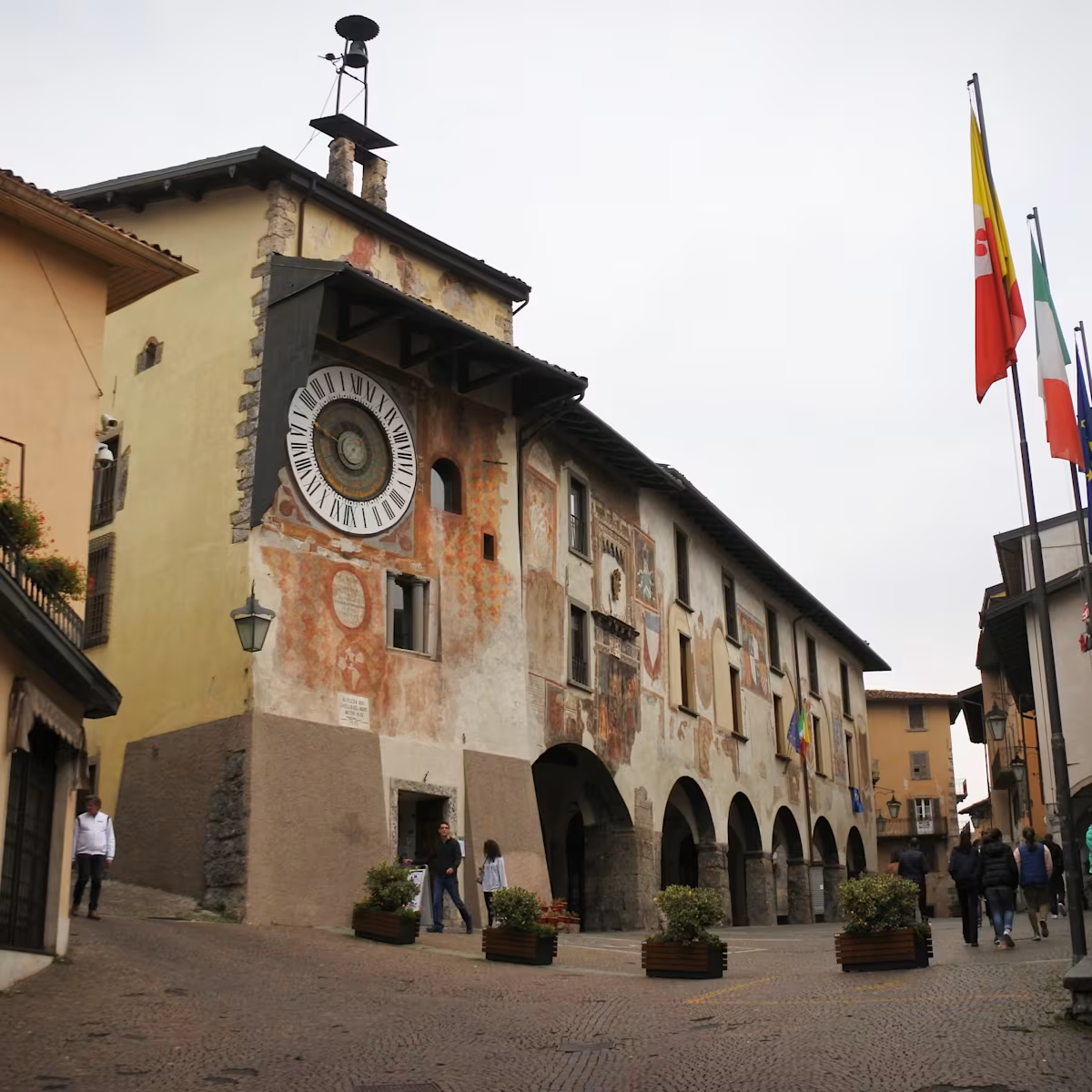
Legrenzi: A forgotten genius full of surprises
In the town of his birth, the Musica Mirabilis ‘Giovanni Legrenzi’ Festival revives the legacy of a composer who links Renaissance polyphony with Baroque drama.


